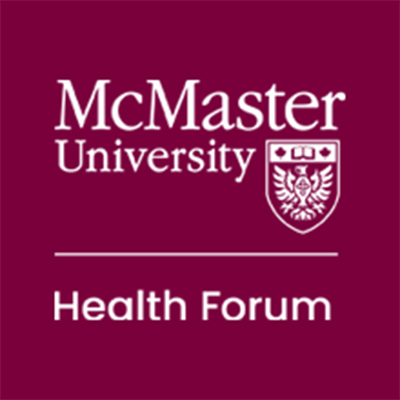Want to better understand how the health and social systems work and how you can better advocate for changes that would improve these systems for you and your family? Enhance your knowledge with one of our free courses for citizens:
Finding and using research evidence: A guide for citizens
In this free online course, you’ll be provided with solutions to overcome the most commonly cited frustrations people have when trying to access research evidence. Prepared by the McMaster Health Forum with support from the Ontario SPOR SUPPORT Unit, the course is now available online as a set of eight videos:
Here are helpful resources that are drawn on in the course:
- Definitions for word and phrases used in the modules
- How to make sure health information is trustworthy
- Links to online sources mentioned in the modules
Don’t miss the most important resource for citizen-targeted evidence about healthy aging:
Understanding how to navigate the health system
Knowing how your health system works will better you to navigate the system, identify opportunities to make things better, and advocate for changes that you’d like to see. This free online course describes the 'building blocks' of Ontario’s health system as well as how those building blocks are used to provide care in the province in different ways (e.g., by sector, condition, treatment, population). While Ontario is the example, these principles are useful to understanding health systems other jurisdictions in Canada and internationally.
Prepared by the McMaster Health Forum with support from the Ontario SPOR SUPPORT Unit, the course is now available online as a set of six videos:
Here are helpful resources that are drawn on in the course:
- Free download of chapters from Ontario’s Health System: Key Insights for Engaged Citizens, Professional and Policymakers. The Ontario book is also helpful in understanding other health systems
Don’t miss the most important resource for citizen-targeted evidence about healthy aging:
Masterclass on patient-oriented research
The Forum’s masterclass was designed to prepare future champions for the conduct and use of patient-oriented research and future mentors to others becoming involved in the conduct and use of patient-oriented research. While we are not currently planning any sessions for the masterclass on patient-oriented research, you can access all of the course material to learn more about patient-oriented research.
Year in review - 2019
Although the new year is already off to a busy start, we wanted to take a moment to reflect on some of the many highlights and key successes from 2019. During the past year, the Forum:
- celebrated ten years of supporting evidence-informed policymaking
- launched RISE – in partnership with our colleagues at Trillium Health Partners and the Ottawa Hospital Research Institute – to provide evidence-based support to Ontario Health Teams (OHTs) using a ‘rapid learning and improvement’ lens as part of the Ontario Ministry of Health’s OHT Central Program of Supports
- renewed its designation as the PAHO/WHO Collaborating Centre for Evidence-Informed Policy for another four-year term
- expanded the scope of Social Systems Evidence, the world’s most comprehensive, free online repository of pre-appraised, synthesized research evidence for social-system policymakers and stakeholders, to cover all of the Sustainable Development Goals, as well as 20 program and service areas, through a partnership with the Monash Sustainable Development Institute
- joined the Sustainable Development Solutions Network, a global initiative that mobilizes global scientific and technological expertise to promote practical solutions for sustainable development
The Forum also helped policymakers, stakeholders, citizens, students and researchers to:
- learn how to make more evidence-informed decisions or how to support others in doing so by having:
- trained an additional 1,000+ policymakers, stakeholders, researchers and students through our Learn How program, which offers both online and face-to-face learning opportunities
- launched a new training model to support stakeholders and policymakers, which combines our online training with three two-hour virtual-learning workshops designed to further build the capacity of participants and support the development of an evidence brief
- hosted nine webinars in our ’Top Ten’ series, featuring insights into health and social systems, evidence-informed policymaking, and a range of key health and social issues
- engaged 10 Queen Elizabeth Scholars to reach a total of 72 scholars, with 61 focused on strengthening health systems since 2015 and 11 working to strengthen health and social systems since 2018
- find evidence about pressing issues by having:
- provided free access to over 13,800 registered users of Health System Evidence, the world’s most comprehensive source of synthesized research evidence about how to strengthen health systems and get the right programs, services and products to those who need them
- added over 1,500 systematic reviews and related synthesis products (overviews of systematic reviews, systematic reviews in progress, and systematic reviews being planned) to Social Systems Evidence, which now features over 3,300 documents
- added a monthly evidence service for Social Systems Evidence, allowing users to get updates on the latest evidence of interest to them
- responded, through our Rapid Response program, to 19 time-sensitive requests from policymakers and stakeholders for evidence about health- and social-system issues
- continued to add new content to the McMaster Optimal Aging Portal (and the French-language Portail sur le vieillissement optimal de McMaster) on over 75 topics, including civic engagement, consumer protection, exercise, nutrition, and social isolation
- spark action by having convened five citizen panels and eight stakeholder dialogues on pressing health and social issues, such as rapid-learning health systems, achieving greater impact from investments in medicine, and enhancing the delivery of comprehensive care for people living with HIV
We continued to engage with a diverse array of individuals and organizations through social media, reaching more than 4,100 followers through @McMasterForum on Twitter.
Thank you to all our partners and supporters for making 2019 (and our first ten years) such a success. We look forward to building on these accomplishments in 2020 and over the next decade!
- McMaster Forum

